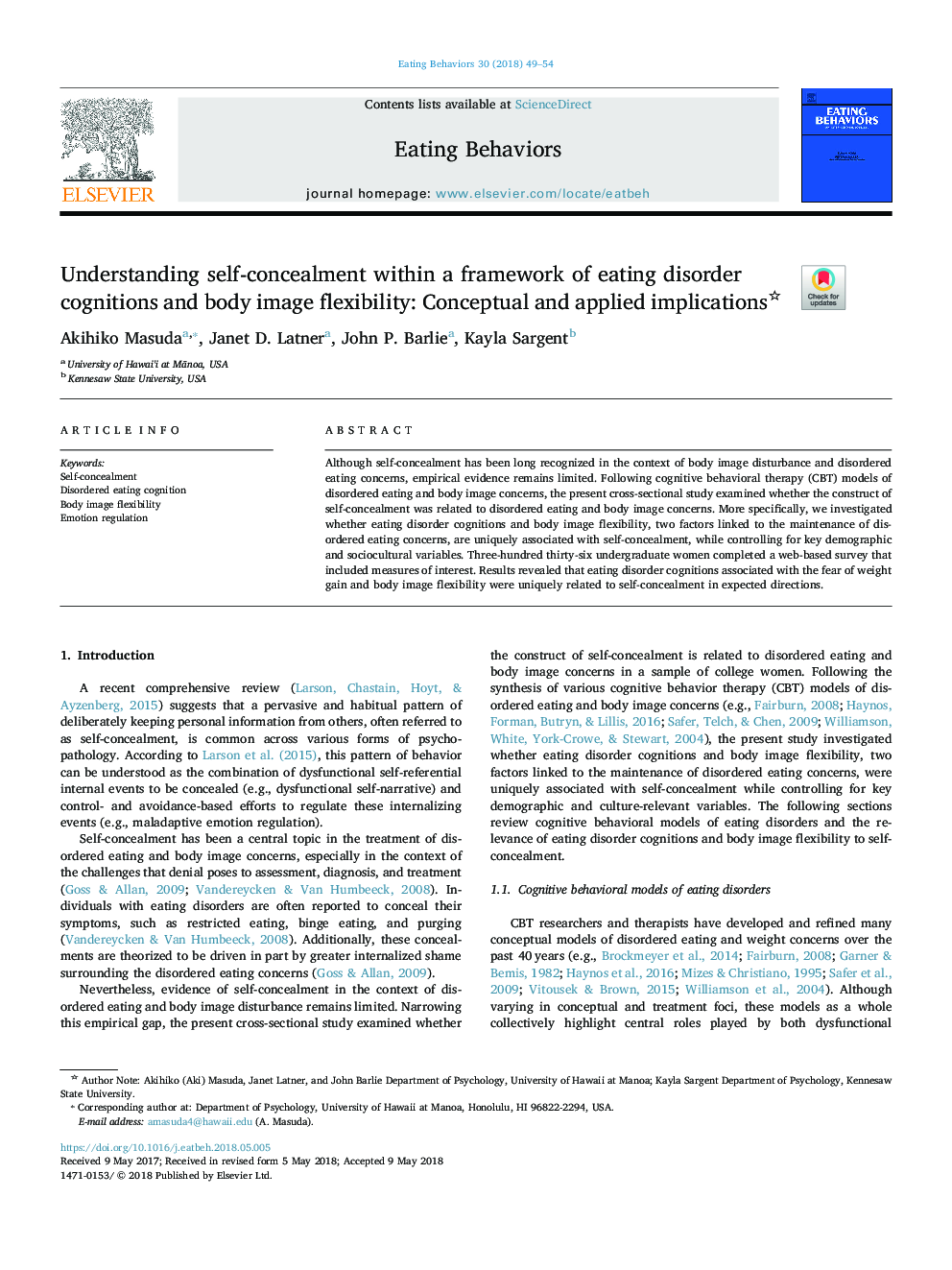| Article ID | Journal | Published Year | Pages | File Type |
|---|---|---|---|---|
| 7264856 | Eating Behaviors | 2018 | 6 Pages |
Abstract
Although self-concealment has been long recognized in the context of body image disturbance and disordered eating concerns, empirical evidence remains limited. Following cognitive behavioral therapy (CBT) models of disordered eating and body image concerns, the present cross-sectional study examined whether the construct of self-concealment was related to disordered eating and body image concerns. More specifically, we investigated whether eating disorder cognitions and body image flexibility, two factors linked to the maintenance of disordered eating concerns, are uniquely associated with self-concealment, while controlling for key demographic and sociocultural variables. Three-hundred thirty-six undergraduate women completed a web-based survey that included measures of interest. Results revealed that eating disorder cognitions associated with the fear of weight gain and body image flexibility were uniquely related to self-concealment in expected directions.
Related Topics
Life Sciences
Neuroscience
Behavioral Neuroscience
Authors
Akihiko Masuda, Janet D. Latner, John P. Barlie, Kayla Sargent,
